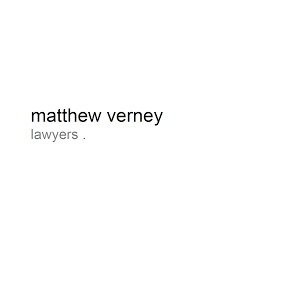Best Real Estate Lawyers in Devonport
Share your needs with us, get contacted by law firms.
Free. Takes 2 min.
Free Guide to Hiring a Real Estate Lawyer
List of the best lawyers in Devonport, Australia
Australia Real Estate Legal Questions answered by Lawyers
Browse our 2 legal questions about Real Estate in Australia and read the lawyer answers, or ask your own questions for free.
- Contract law
- Can the previous owner of a business be classed as neglected if he didn't do the maintenance on the referaction units before selling the business to me
-
- Cancel a property contract
- I have cancelled a property contract (after 3 years) and asked for the refund I am entitled to. How long after cancellation should the refund be paid?
-
Lawyer answer by RI & Associates
Could you let me know if the contract was for a property based in Pakistan? If it's in Pakistan, then I can advise on the course of action. Regards, Rana Ahmad
Read full answer
About Real Estate Law in Devonport, Australia
Devonport, located in Tasmania, is an attractive city characterized by its vibrant community and scenic beauty. The real estate market in Devonport has been steadily expanding, supported by an influx of residents attracted to the region's lifestyle and economic opportunities. Real estate law in Devonport encompasses a wide range of legal matters related to property, including buying, selling, leasing, and land development. Understanding the nuances of local legislations is crucial for anyone involved in property transactions to ensure compliance and protect their investments.
Why You May Need a Lawyer
Engaging a lawyer specializing in real estate can be beneficial in numerous situations, such as:
- Understanding complex property contracts and agreements.
- Navigating disputes arising from property ownership or boundary issues.
- Assisting with the legal aspects of buying or selling a property to ensure all legal requirements are met.
- Handling lease agreements and resolving landlord-tenant disputes.
- Providing guidance on tax implications and financial liabilities of real estate transactions.
- Supporting clients through the development approval process for land or construction projects.
Local Laws Overview
Real estate in Devonport is primarily governed by Tasmanian state legislation, including specific local regulations aimed at preserving the unique character of the area. Key aspects of local laws relevant to real estate include:
- Property Transactions: Most property sales and purchases in Devonport are governed by the Property Law Act 2000.
- Tenancy Law: Residential tenancies are regulated by the Residential Tenancy Act 1997, covering the rights and responsibilities of landlords and tenants.
- Land Use and Planning: Land use in Devonport is controlled by the Devonport Interim Planning Scheme, which outlines permissible developments and land use categories.
- Environmental Regulations: Some properties may be subject to specific environmental regulations, especially those near coastal areas or protected lands.
Frequently Asked Questions
What should I consider before buying a property in Devonport?
Consider the property's location, zoning laws, condition, market value, and any existing covenants or easements. It’s advisable to carry out a thorough property inspection and consult a real estate lawyer.
How is stamp duty calculated in Devonport?
Stamp duty is calculated based on the purchase price of the property. The Tasmanian State Revenue Office provides detailed rates and may offer concessions for first-home buyers.
What are the legal requirements for selling a house in Devonport?
Sellers must provide accurate property disclosures, set clear terms in the contract of sale, and ensure compliance with Tasmanian real estate legislations.
How can I resolve a boundary dispute with a neighbor?
Boundary disputes can often be resolved through negotiation, but if an agreement cannot be reached, legal advice may be necessary, and surveying may be required to clarify boundary lines.
What is conveyancing and why is it important?
Conveyancing is the legal process of transferring property ownership. It ensures that the title is correct and that all legal obligations are met in the transaction, which is crucial to avoid future disputes.
Are there any restrictions on foreign property purchases in Devonport?
Yes, foreign buyers may be subject to restrictions and are usually required to obtain approval from the Foreign Investment Review Board (FIRB).
Can I evict a tenant if I want to sell my property?
Evicting a tenant for selling a property involves legal processes. Specific notice periods and justifications must be followed, as outlined in the Residential Tenancy Act 1997.
What should landlords know about lease agreements?
Lease agreements should clearly detail rental terms, tenant obligations, and property maintenance responsibilities. Legal advice can ensure the lease complies with all necessary regulations.
How do environmental laws affect property development in Devonport?
Environmental laws can impose restrictions on development to protect local ecosystems, especially in areas close to sensitive environments. Development applications often require environmental assessments.
What is the process for disputing property rates or valuation?
Property rates or valuations can be contested through local council procedures. This usually involves formal objections and may require supporting evidence.
Additional Resources
For further assistance with real estate matters in Devonport, consider reaching out to the following resources:
- Tasmanian State Revenue Office: Provides information on duties and taxation related to property.
- Devonport City Council: Offers resources on local planning schemes and property development guidelines.
- Consumer, Building and Occupational Services: Can assist with compliance and regulations concerning property sales and leases.
- Real Estate Institute of Tasmania: A useful source for recent news, trends, and guidance on the local real estate market.
Next Steps
If you require legal assistance for real estate matters in Devonport, consider the following steps:
- Clearly outline your legal needs and objectives related to your property concerns.
- Research and consult with a reputable lawyer specializing in real estate to ensure they have relevant experience and understanding of local laws.
- Schedule a consultation to discuss your situation, obtain legal advice, and develop a strategy moving forward.
- Gather all necessary documents related to your property for review, such as title deeds, contracts, and correspondence.
- Follow up on action items suggested by your lawyer to ensure legal compliance and protect your property interests.
Lawzana helps you find the best lawyers and law firms in Devonport through a curated and pre-screened list of qualified legal professionals. Our platform offers rankings and detailed profiles of attorneys and law firms, allowing you to compare based on practice areas, including Real Estate, experience, and client feedback.
Each profile includes a description of the firm's areas of practice, client reviews, team members and partners, year of establishment, spoken languages, office locations, contact information, social media presence, and any published articles or resources. Most firms on our platform speak English and are experienced in both local and international legal matters.
Get a quote from top-rated law firms in Devonport, Australia — quickly, securely, and without unnecessary hassle.
Disclaimer:
The information provided on this page is for general informational purposes only and does not constitute legal advice. While we strive to ensure the accuracy and relevance of the content, legal information may change over time, and interpretations of the law can vary. You should always consult with a qualified legal professional for advice specific to your situation.
We disclaim all liability for actions taken or not taken based on the content of this page. If you believe any information is incorrect or outdated, please contact us, and we will review and update it where appropriate.
Browse real estate law firms by service in Devonport, Australia
Devonport, Australia Attorneys in related practice areas.









